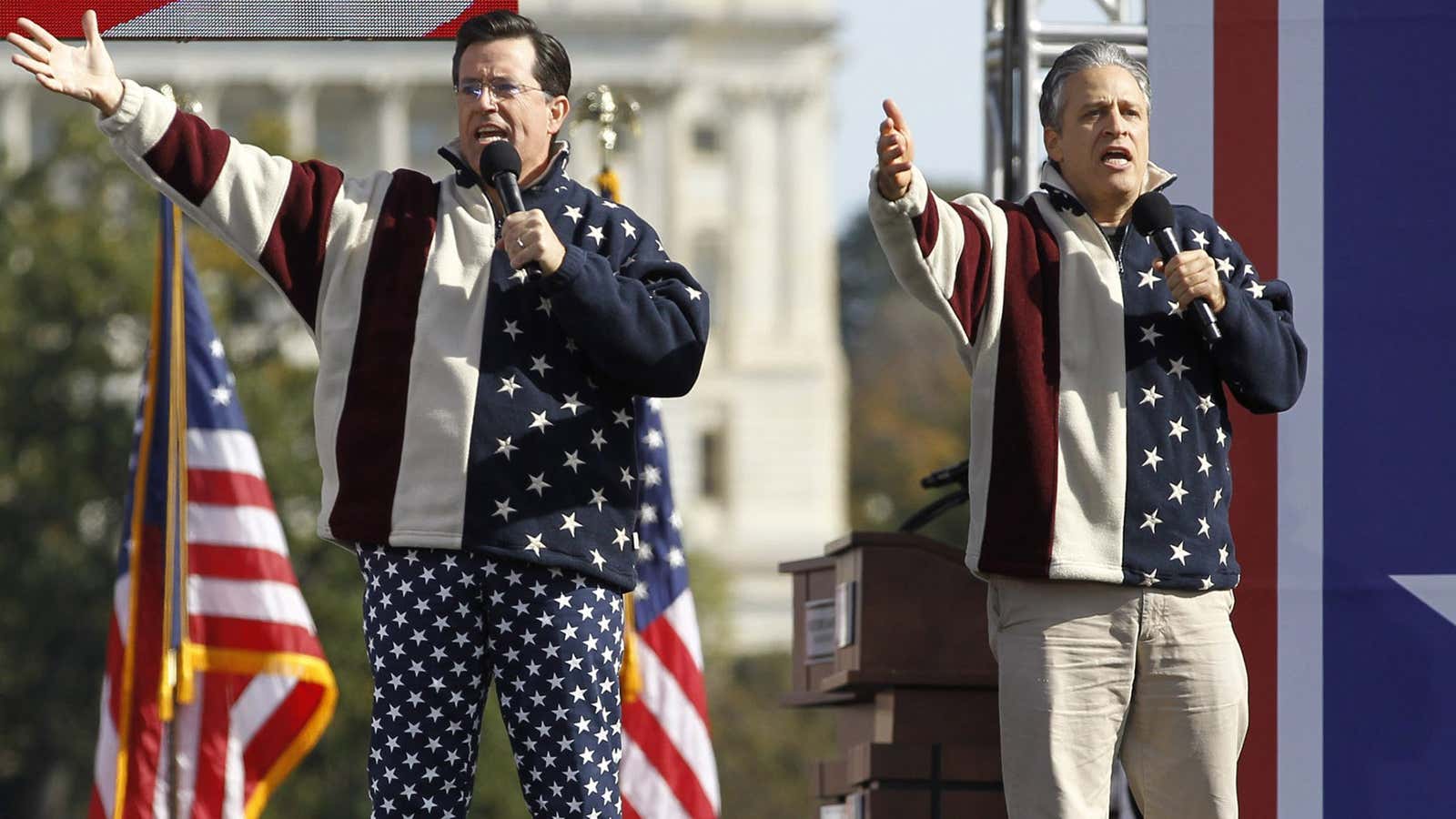The last time Jon Stewart, Stephen Colbert, John Oliver, Samantha Bee, Ed Helms, and Rob Corddry all worked together, George W. Bush was president of the United States, and Donald Trump was forcing his The Apprentice contestants to sell Domino’s pizza on the streets of New York City.
Twelve years and two presidents later, the old Daily Show gang is getting back together—for one night, at least.
Next Tuesday (May 9), Colbert will be joined by his former colleagues for a special episode of The Late Show on CBS, the network announced. The reunion is meant to commemorate Colbert’s 20-year career in late-night TV, which started in 1997 on The Daily Show on Comedy Central.
Colbert was a correspondent on Stewart’s Daily Show for eight years, leaving in 2005 to host his own Comedy Central satirical news program, The Colbert Report (which ended in 2014). Oliver, Bee, Helms, and Corddry were also correspondents under Stewart’s tutelage. Like Colbert, Oliver and Bee have both gone on to host their own shows, while Helms and Corddry have mostly moved to acting in Hollywood comedies.
Stewart, meanwhile, left his post as The Daily Show host in 2015, and is now working on a short-form animated comedy project for HBO. He’s sparsely been seen on television since then, though he has appeared twice already on Colbert’s Late Show to roast president Trump. Comedian Trevor Noah now hosts The Daily Show with a new cast of correspondents.
A lot has changed in entertainment and politics since the heyday of Stewart’s Daily Show in the mid-2000s. Political satire is far less homogeneous than it once was (partially because many of Stewart’s protégés now host similar shows) and no single program is nearly as relevant culturally as The Daily Show was when Stewart was host. And the politics of that time seemed simpler and more susceptible to satire. Comedians are still struggling with how to approach an American presidency that seems to transcend parody.
On his Late Show, Colbert has shed the boisterous, Bill O’Reilly-esque, mock-conservative pundit persona he used on The Colbert Report. But he hasn’t abandoned politics altogether, and his pointed, clever teasing of Trump has helped him supplant Jimmy Fallon as the king of late-night comedy (and, recently, landed him in some hot water).
Colbert’s success proves that Americans still have an appetite for political comedy (Fallon generally avoids being political), but his show carries neither the influence nor the stature that Stewart’s The Daily Show did. Getting the band back together for one night won’t change that, and may just remind us of what we’ve been missing.
